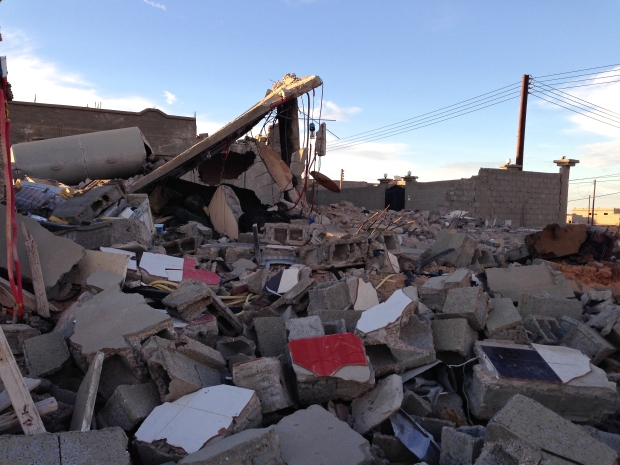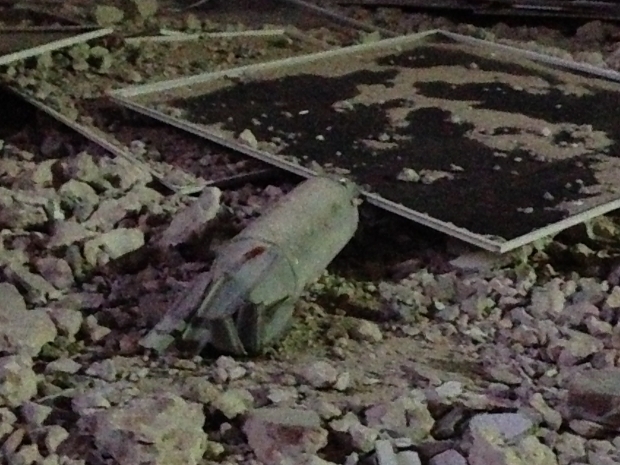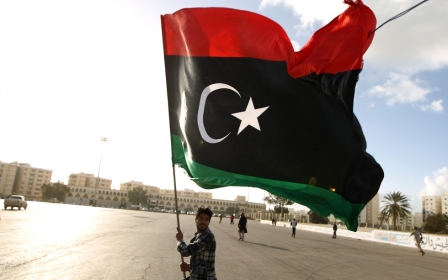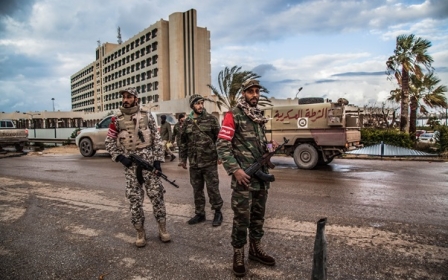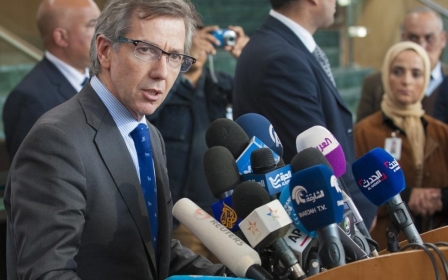Tripoli forces withdraw from battle for Libyan oil ports
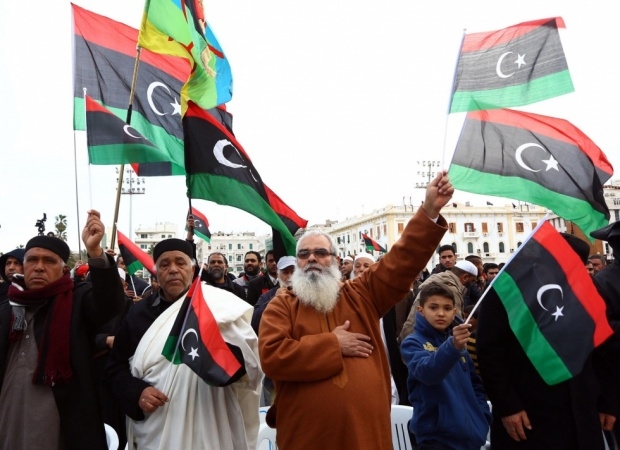
Forces under Libya’s Tripoli-based General National Congress (GNC) have withdrawn from a fruitless three-month military operation to try and take control of oil ports on the central Libyan coast and are redoubling efforts to eradicate Islamic State militants.
The Third Force, a military unit of the GNC, has left the town of Bin Jawad, which it had occupied since mid-December. The town, 30 kilometres west of the Es Sidra oil export terminal, was used by the Third Force as a base from which to launch attacks on the facility.
Sidra, Libya’s largest oil port, is under the jurisdiction of the Western-backed House of Representatives (HoR) government and parliament based in eastern Libya, although self-styled federalist leader Ibrahim Jadhran has retained power at the facility since mid-2013. He pledged allegiance to the HoR after the Third Force launched its offensive on Sidra in December and, since then, his forces have been fighting alongside the HoR’s Libyan National Army (LNA).
“A ceasefire agreement was reached for Jadhran’s forces to withdraw to Ajdabiya and surrender the oil terminals to the National Oil Corporation,” de facto spokesperson for the GNC Jamal Zubia told Middle East Eye. He claimed it was under this agreement that the Third Force had withdrawn to Sirte.
The eastern-based Libyan news agency LANA, however, reported that government forces did not pull back and said Jadhran’s forces remained at Sidra.
Zubia explained that the Third Force had returned to Sirte to join “the fight against the Gaddafi-Daesh” - a reference to the contention of the GNC that IS consists mainly of members loyal to the former regime of Muammar Gaddafi. These loyalists, it claims, are now operating under the IS name in a bid to further destabilise the country.
Officials in the Tripoli-based Defence Ministry (MoD) and some military commanders from Misrata, however, have described IS as a progression of extremist ideologies in Libya that started during the 2011 revolution with the creation of militant organisations, including the US-terror listed Ansar Al-Sharia. These have been boosted by fighters returning from Syria - estimated to be around 700 Libyans - some of whom brought with them more extremist ideologies, according to one MoD official.
At a meeting with tribal leaders and senior local figures from Bin Jawad, one Third Force commander explained that the withdrawal from the battle for Sidra was to enable the force to focus on fighting IS militants in and around Sirte. He reportedly offered assurances that the Third Force would not leave the oil facilities - described as “the property of the Libyan people” - in the hands of tribal leaders such as Jadhran indefinitely, adding that, once IS was defeated, the battle for Sidra would start again.
The Third Force retreat has sparked fears amongst local people that IS, which has gained a strong foothold in the oil-rich desert area stretching south from the coast between Sirte and Sidra, could be left to expand unchecked. IS is thought to be behind four recent attacks on oil fields in the barren area. During these assaults, members of the Petroleum Facilities Guard tasked with protecting the country’s oil facilities have been killed, at least nine foreign employees kidnapped and oil field equipment and vehicles looted. Since the start of these attacks, 11 oil fields have been placed under Force Majeure, a legal instrument allowing Libya to suspend contractual obligations owing to extraordinary circumstances.
One resident from the town of Nufaliya, 30 kilometres west of Bin Jawad, said that since the Third Force had withdrawn from the area, IS militants had already returned to Nufaliya, setting up a checkpoint between the town and the main coastal highway. “Although there were battles here, the Third Force did not kill all the IS people and now they have returned to our town. They are now making sand barriers in the area, and it looks like they are preparing for a fight,” he said.
“The Third Force did quite well fighting IS here initially but most of their soldiers are young men with limited training, and now they are scared since they discovered that the IS fighters are well-trained and skilful,” said the local resident, who spoke on condition of anonymity.
“I think part of the reason the Third Force pulled out was because, although they agreed to fight IS, they now realise they don’t have the skills or experience to beat them in the desert,” he said. He claimed that the Third Force lacked night vision equipment and that at least 11 were killed in early-morning raids carried out by IS.
The continued presence of IS in the area is also a concern for beleaguered residents of Bin Jawad, who have finally been able to return to their homes after living as internally displaced people (IDPs) for three months whilst the town was occupied by the Third Force. Although, unlike both Nufaliya and Sirte, the town does not have a history of extremism following the 2011 revolution, residents have been encouraged to educate their children, especially vulnerable teenage sons, about the dangers posed by extremist ideologies in an effort to prevent any further local spread of IS.
A more pressing concern for the people of Bin Jawad is the severe damage the town sustained during its three-month occupation, during which time it was repeatedly bombed by the LNA.
“At least 40 homes have been destroyed and there is a problem with unexploded ordinance in the town, including missiles from a bomb that fell on the Wahda Bank,” said the head of Bin Jawad’s crisis committee Fadiel Fadeal. He fears de-mining groups will not deploy in the remote town in the current unstable security situation, and while IS remains nearby.
He said IDPs were now returning to Bin Jawad, desperate to regain their homes despite the threat of both IS and unexploded bombs.
New MEE newsletter: Jerusalem Dispatch
Sign up to get the latest insights and analysis on Israel-Palestine, alongside Turkey Unpacked and other MEE newsletters
Middle East Eye delivers independent and unrivalled coverage and analysis of the Middle East, North Africa and beyond. To learn more about republishing this content and the associated fees, please fill out this form. More about MEE can be found here.


